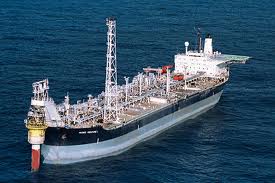Special topics
 THE SUPPLY CHAIN OF THE OIL AND GAS INDUSTRY IN GHANA
THE SUPPLY CHAIN OF THE OIL AND GAS INDUSTRY IN GHANA
Ghana’s Oil and Gas Industry is operational within three sectors; upstream, mid-stream, and downstream. The upstream sector also known as the exploration and production (E&P) sector is that aspect of the value chain involved in crude oil and natural gas recovery and production. Legally, the Ministry of Petroleum (MoP) and Parliament regulate all three sectors of the oil and gas industry.
Currently Ghana has two oil field in production and these are Jubilee field where FPSO Nkrumah (Floating Production, Storage and Offloading) is located and salt pond. In addition to the production, there are number of drilling activities going in Ghana. Activities in the upstream are presently supervised by the Ghana National Petroleum Commission (GNPC) on behalf of the Ministry of Petroleum due to their technical expertise. The mid-stream sector involves all activities between the oil well head and the refinery. It includes transportation of oil and gas from oil fields such as Jubilee to refineries onshore and storage of petroleum.
The downstream sector is an onshore operation that revolves around refining, distribution, and marketing of petroleum products. The Tema Oil Refinery (TOR) which is already operational and a proposed but yet to be constructed gas processing plant at Bonyere in the Western Region, will be used for oil refineries and gas production respectively. The Bulk Oil Storage and Transport (BOST) Company Limited has a dual responsibility of petroleum storage and transport and gas distribution in the country. The National Petroleum Authority (NPA) established an Act of Parliament in 2005 to regulate, oversee and monitor activities in the downstream petroleum industry. However, downstream natural gas is regulated by the Energy Commission (EC). The linkages from upstream through mid-stream to downstream and vice versa are facilitated through various supply chain activities in the areas of logistics, aviation, marine, local content and vendor development strategy, and contracting and procurement. The oil and gas Industry rides on heavy logistical support. It requires importation of materials and equipment through Sea Freight and Air Freight Shipments. From 2009 to the first quarter of 2010, there were 383 sea freights and 1,590 air freights shipments for the Jubilee Field. Aviation plays an important role in the supply chain. Helicopters and fixed wing aircrafts are used to carry workers and staff to and from the rig and the FPSO Nkrumah. This could also be used for replenishment on the offshore platforms.
To conclude, the supply chain of the oil and Gas industry is a complex and a highly technical sector that generates enough revenue for the Government and seeks to bring development and improve living standards. By developing the local content, the sector could employ a lot of people to improve living standards in the along the supply chain.
BY: DAVID ADUEHEN TANOH:www.reportingoilandgas.com